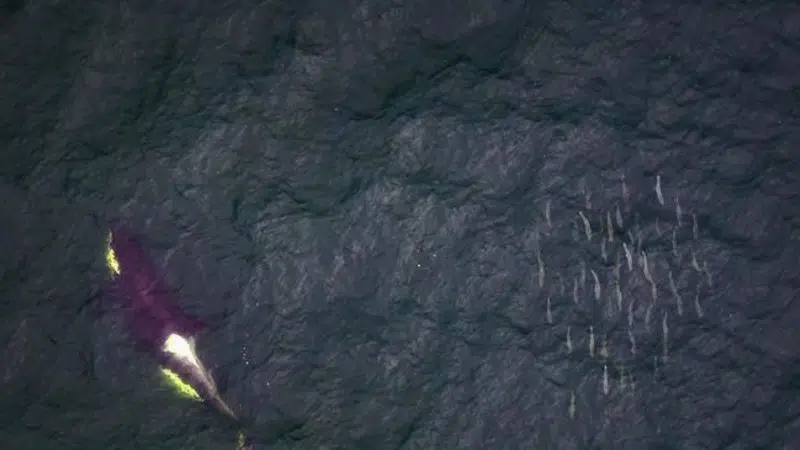
Scientists using aerial drones to compare northern and southern whale behaviour
VANCOUVER — Scientists at the University of British Columbia are using aerial drones to study whether endangered southern resident killer whales are getting enough of their preferred prey, chinook salmon.
They spent three weeks in August and September monitoring pods of southern and northern resident killer whales in the Salish Sea and off the central coast of B.C.
Project lead Andrew Trites says because of a lack of historical data and behavioural observations of southern residents, the northern residents are an important point of comparison.
He says like southern residents, they feed primarily on chinook and chum salmon and face many similar threats from water and noise pollution, increased shipping traffic and reduced abundance of food but unlike their southern counterparts, the northern population has increased significantly.


